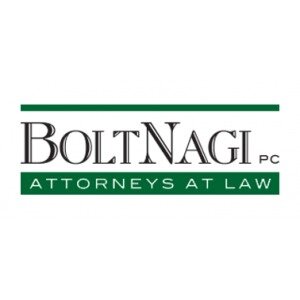Best Nonprofit & Charitable Organizations Lawyers in Road Town
Share your needs with us, get contacted by law firms.
Free. Takes 2 min.
List of the best lawyers in Road Town, British Virgin Islands
About Nonprofit & Charitable Organizations Law in Road Town, British Virgin Islands
Nonprofit and charitable organizations play a significant role in the social and economic fabric of Road Town, British Virgin Islands. The legal framework governing these entities is designed to foster public trust and ensure compliance with both local and international standards. Establishing a nonprofit in Road Town generally involves adhering to specific regulatory requirements related to registration, tax obligations, governance, and financial reporting. The laws aim to ensure that these organizations operate transparently and effectively to meet their philanthropic missions.
Why You May Need a Lawyer
Navigating the complexities of nonprofit and charitable organization law can be challenging without professional guidance. People often require legal help in several common situations, such as:
- Establishing a nonprofit organization and ensuring compliance with registration requirements.
- Understanding and meeting tax obligations specific to nonprofit entities.
- Drafting or amending bylaws and governing documents.
- Handling disputes or litigation involving the organization.
- Interpreting local and international regulatory requirements.
- Facilitating mergers or collaborations between nonprofit entities.
- Managing charitable donations and ensuring accountability and transparency in resource allocation.
Local Laws Overview
Nonprofit and charitable organizations in Road Town are subject to several key legal requirements:
- Registration: Organizations must register with the Registrar of Corporate Affairs. This process includes submitting various documents and meeting specific criteria.
- Taxation: Nonprofits may qualify for certain tax exemptions, but they must comply with annual reporting and filing obligations to maintain these benefits.
- Governance: Proper governance structures must be established, including a board of directors and clear bylaws outlining the organization's operational framework.
- Financial Reporting: Organizations must maintain accurate financial records and may be required to submit audited accounts annually.
- Charitable Solicitation: There are regulations on how funds can be solicited from the public, ensuring transparency and proper use of donated resources.
Frequently Asked Questions
What is the process to register a nonprofit organization in Road Town?
The registration process involves submitting an application to the Registrar of Corporate Affairs with required documents, including the organization's proposed constitution, details of directors, and proof of a local registered office.
Are there tax exemptions available for nonprofits in Road Town?
Yes, nonprofit organizations in Road Town may qualify for tax exemptions, provided they meet specific criteria and continued compliance with reporting obligations.
What governance requirements must a nonprofit meet?
A nonprofit should have a board of directors, adopt bylaws, and hold regular meetings to address organizational matters and ensure compliance with governance standards.
How often do nonprofits need to file financial reports?
Nonprofits are typically required to file annual financial reports. These reports must include detailed records of financial activities and may need to be audited by an independent accountant.
Can a foreign nonprofit operate in Road Town?
Yes, foreign nonprofits can operate in Road Town, but they must comply with local registration and regulatory requirements to carry out activities legally.
What permits are needed to solicit donations in Road Town?
Organizations engaging in charitable solicitation must adhere to local regulations, which may include obtaining specific permits or licenses, ensuring transparency in their fundraising efforts.
What legal obligations do nonprofit boards have?
Boards have a fiduciary duty to oversee the organization’s management, uphold transparency, ensure compliance with applicable laws, and fulfill the organization's mission responsibly.
Can a nonprofit generate income in Road Town?
Nonprofits can generate income through lawful business activities, but the primary motive should align with their charitable objectives, and income must be used to further the organizational purpose.
How can disputes within a nonprofit be resolved?
Disputes can often be resolved internally through mediation or negotiation, but legal action may be necessary if an equitable resolution cannot be reached. Legal counsel should be involved to guide the process effectively.
Are there restrictions on political activities for nonprofits in Road Town?
Nonprofits must be cautious with political activities as they may risk losing their tax-exempt status if they engage excessively in political campaigns or lobbying.
Additional Resources
Several resources are available for individuals seeking more information or assistance with nonprofit and charitable law in Road Town:
- The Office of the Registrar of Corporate Affairs, responsible for nonprofit registrations and filings.
- Local legal firms specializing in nonprofit law for tailored advice and representation.
- The Financial Services Commission, providing regulatory oversight.
- National and international nonprofit associations offering guidance and support networks.
Next Steps
If you require legal assistance with a nonprofit or charitable organization in Road Town, begin by gathering all relevant documents related to your organization. Consult with a legal professional experienced in nonprofit law to explore your specific needs and obligations. Initial consultations can provide clarity on your situation and help determine the most prudent course of action to ensure compliance and successful operation within the legal framework.
Lawzana helps you find the best lawyers and law firms in Road Town through a curated and pre-screened list of qualified legal professionals. Our platform offers rankings and detailed profiles of attorneys and law firms, allowing you to compare based on practice areas, including Nonprofit & Charitable Organizations, experience, and client feedback.
Each profile includes a description of the firm's areas of practice, client reviews, team members and partners, year of establishment, spoken languages, office locations, contact information, social media presence, and any published articles or resources. Most firms on our platform speak English and are experienced in both local and international legal matters.
Get a quote from top-rated law firms in Road Town, British Virgin Islands — quickly, securely, and without unnecessary hassle.
Disclaimer:
The information provided on this page is for general informational purposes only and does not constitute legal advice. While we strive to ensure the accuracy and relevance of the content, legal information may change over time, and interpretations of the law can vary. You should always consult with a qualified legal professional for advice specific to your situation.
We disclaim all liability for actions taken or not taken based on the content of this page. If you believe any information is incorrect or outdated, please contact us, and we will review and update it where appropriate.














